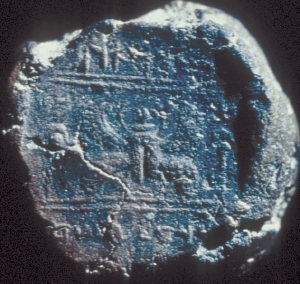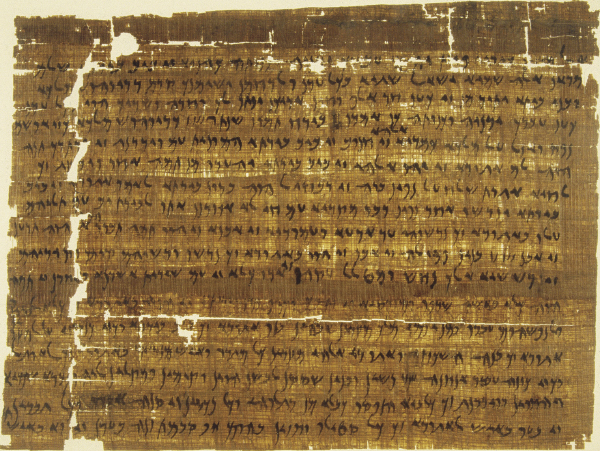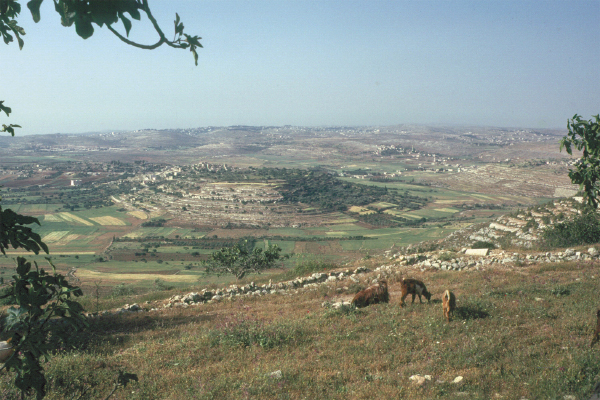Gedaliah Assassinated (40:7–41:18)
Harvest the wine, summer fruit and oil (40:10). Jerusalem fell in July of 586 B.C. (see comment on 39:1). This is just before grapes, olives, figs, dates, and other fruits are ready to be harvested. This reality is well illustrated by what is known as the Gezer Calendar, which has the following statements: “July to pick the fruit of summer. August and September to pick olives” (see comment on 8:20).315
Baalis king of the Ammonites (40:14). This king appears only here in the Hebrew Bible. We know little about him. He may have been present at the Jerusalem conference (594–593 B.C.), when a number of kings got together to plan a rebellion against Babylon—a conspiracy that never materialized (see comments on 27:3 and 30:14). Baalis may also have supported Gedaliah’s opponents, who represented the Davidic family’s claim to the throne. But perhaps he wanted to destabilize the process of reconstruction initiated in Mizpah, so that Judah would not represent any threat to Ammon in the near future. In any case, he evidently participates in a plot to kill Gedaliah, the governor Nebuchadnezzar king of Babylon has placed to rule over what remained of Judah.

Ammonite seal from Tell el-”Umeiri bearing name of Baalis
Courtesy of the Institute of Archaeology, Andrews University
In recent years an Ammonite seal has been discovered at Tell el-ʿUmeiri that bears the name of Baalis.316 This site is located about eight miles southwest of Amman Jordan. The name appears as Baal-yasha or Baal-yisha, which can be understood as “Baal saves” or “Baal has saved.” This is the first extrabiblical information available to us regarding this Ammonite king.
In the seventh month Ishmael son of Nethaniah (41:1). The seventh month of the Jewish calendar is Tishri, which is the equivalent to September–October (see comments on 39:1). No year is given here. Though some scholars consider that the events narrated here happened three to five years after the fall of Jerusalem,317 others suggest it happened within the same year as the fall of the city (i.e., 586 B.C.). If so, then Gedaliah would have ruled only two to three months before his assassination. The month of Tishri is the month when the Feast of Booths was celebrated. At this time many of the inhabitants of Judah who were left behind by the Babylonians would celebrate the Feast of Booths, a festival clearly associated with the agricultural life of Israel.318 This would have been a good time for Ishmael and his group to approach the town of Mizpah without being noticed.
Who had shaved off their beards, torn their clothes and cut themselves (41:5). These are clear and common signs of mourning.319 But there are direct prohibitions in the Torah with regard to some of these practices (Lev. 19:27–28; Deut. 14:1). See comments on 7:29 and 16:6.

Elephantine papyrus petitioning the Persian governor for permission to build a temple
Bildarchiv Preussischer Kulturbesitz/Art Resource, NY, courtesy of the Aegyptisches Museum, Staatliche Museen zu Berlin, Berlin, Germany
Bringing grain offerings and incense with them to the house of the LORD (41:5). Initially one is surprised by this comment. Jerusalem and the temple of the Lord are utterly destroyed, and thus traveling there to offer grain offerings and burn incense seems strange. We do know that animal sacrifices were suspended after the destruction of the temple. Nevertheless, grain offerings and burning incense continued after the return from the Babylonian exile (Neh. 13:5, 9).
There is a parallel situation that occurred in the Jewish colony of Elephantine around 410 B.C. There is a letter from the Elephantine priests to the Persian governor of Judah in which the priests describe in detail how the temple of Yaho had been destroyed. The letter is a petition for permission to rebuild the temple. In that letter the priests describe the present situation by saying: “Also, from then to now, in the year 17 of King Darius [407 B.C.], no meal-offering, in[cen]se, nor burnt-offering have been offered in this temple.”320 The priests want the temple to be rebuilt so that once again the offerings can be offered.
Permission is granted. The temple is to be rebuilt on the same site. Grain offerings and the burning of incense can be resumed, but animal sacrifices are no longer permitted. One of the letters reads, “N[o] sheep, ox, or goat are offered there as burnt offering, but (only) incense, meal-offering, [and drink/offering].”321 Based on the available evidence it would seem that grain offerings continue to be offered in the new rebuilt temple.
The great pool in Gibeon (41:12). For the location and a description of the impressive water system discovered at Gibeon, see comments on 28:1. The issue that must be addressed here is the direction that Ishmael and his fellow-murderers take in order to escape. It is assumed that this group is trying to flee to Ammonite country, where they will seek sanctuary. The most direct way to Ammon from Mizpah does not go through Gibeon. From Mizpah one would go north to Bethel and then connect with a major road that goes east toward Jericho and the Jordan Valley. Gibeon is about three miles southwest of Mizpah. This means that Ishmael and his group almost head in the opposite direction of where Ammon is located.

Gibeon
Bible Scene Multimedia/Maurice Thompson
However, Ishmael probably would try to deceive his pursuers. Furthermore, he may have been planning on taking an alternative route that goes southeast from Gibeon to Jerusalem, where he could then take the Ascent of Adumim down to the Jordan Valley.322 One should not expect a fugitive to follow what would be considered the most normal route.
Geruth Kimham (41:17). This is probably the name of a small town or village located near Bethlehem. In this context, it is used as a stopping place by Johanan son of Kareah and his army, escaping to Egypt after assassinating Gedaliah. “Geruth” appears only here in the Hebrew Bible. Its exact meaning is unknown, though it most likely refers to a kind of lodging place, fief, or habitation. The name of this village can presumably be traced to the Kimham of 2 Samuel 19:38–41, who had the honor of escorting King David across the Jordan on his way back to Jerusalem. Kimham was of the house of Barzillai, a wealthy man from Gilead. According to 1 Kings 2:7 he received a royal pension. Presumably, therefore, he received a portion of land from David that was near Bethlehem. This place eventually becomes known as Geruth Kimham.323